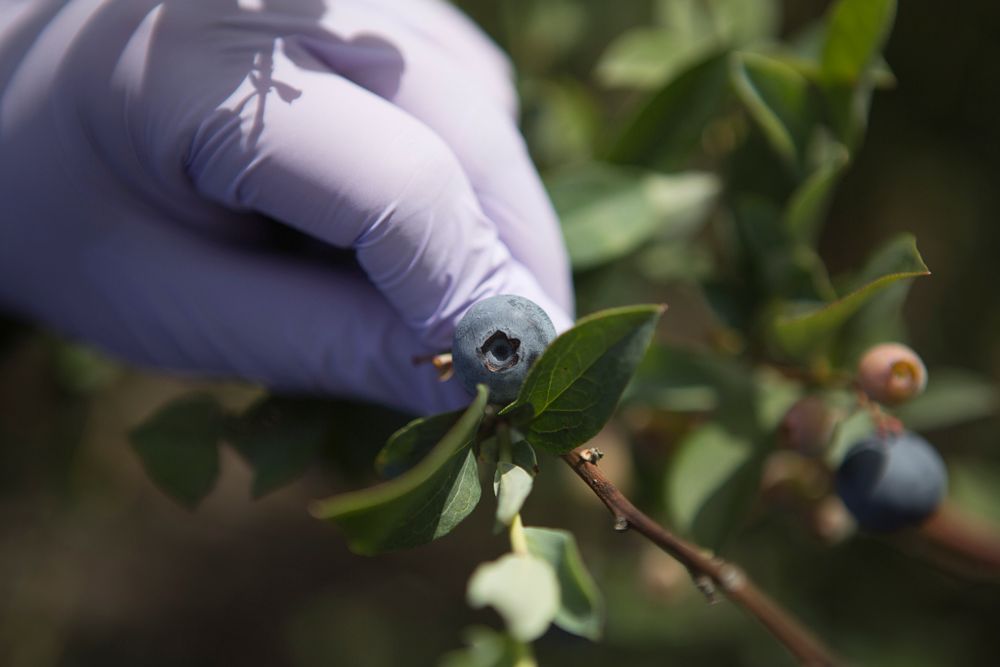By Sharon Omahen
University of Georgia
Tomatoes are rotting and trees are toppling, and it's all from the rain that Georgians prayed would come.
"Leaves are beginning to turn yellow and accumulated runoff is damaging tree roots," said Marco Fonseca, a horticulturist with the University of Georgia. "Trees are actually falling over because they've lost their adhesiveness to the soil. All this moisture is causing them to just fall over."
Fonseca said the state's four-year drought figures into the trees' losing their footing.
From one extreme to another
"We had such a long drought and now it's the other extreme," he said. "The trees have lost their holding power because the root systems that became shallow during the drought are now being drowned by the excess rain."
There isn't much homeowners can do to save trees in this condition. Fonseca does suggest homeowners avoid working the soil around the tree roots.
"Thinning out the trees to help reduce their weight may help, but that's about all you can do," he said.
How do you know if your trees are suspect?
Trees that are suffering will begin to die back on the ends of the branches. Some trees, like hickories and oaks, will lose whole branches.
"Some trees' leaves begin to change colors, which can be the result of waterlogged conditions," Fonseca said. "This is normally a sign that fall has arrived. In this case, it's a sign of too much rain."
Home gardens suffering, too
The abundance of rain has hurt home gardens, too.
"The high humidity and huge downpours of rain are resulting in a high incidence of disease in home gardens," Fonseca said. "Tomatoes, peppers, cucumbers and squash have all been affected."
Aside from the disease stress, fruit-bearing vegetables generally prefer to be drier, so yields are down, too.
"Home gardeners had a hard time planting their gardens because of all the rain, and then it was too muddy for them to get into their gardens to tend them," he said.
When it's not too wet to get into your garden to work, most people can't stand the heat and humidity that often follow summer rains in Georgia.
"It's either pouring like crazy and they can't get in their gardens or it's way too humid," he said. "It's really uncomfortable to work in a garden when the temperature and the humidity are in the 90s."
Home gardeners have been calling Fonseca's office at the UGA Griffin campus seeking help in fighting diseases on their homegrown crops.
"Most people are fighting early and late blight or leaf spot diseases," he said. "We're also getting a lot of reports of blossom end rot, which is caused by an unbalance of water."
So what is a home gardener to do, aside from sitting back and watching their prizewinning tomatoes fall to the ground?
Follow these tips
First and foremost, Fonseca says, stay out of the garden if the leaves are still wet.
"Many diseases move with water, and if you're in the garden when it's wet, you're helping the pathogens move around from one plant to another," he said.
He suggests removing diseased plants, too, as soon as you see them.
"This helps keep the disease from spreading further and gives the remaining plants more space for air circulation," he said.
Fonseca's last bit of advice may seem obvious: resist the urge to water your garden.
"Sometimes gardeners think they just need to water," he said. "Watch your plants, and they'll tell you when they need water. They'll begin to wilt or start to turn gray."






